Sage the Super Q blender review: a mighty but pricey blender
In this Sage the Super Q blender review we made smoothies, juices, frozen yoghurt, and even crushed ice to see if it's worth the £600 price tag.
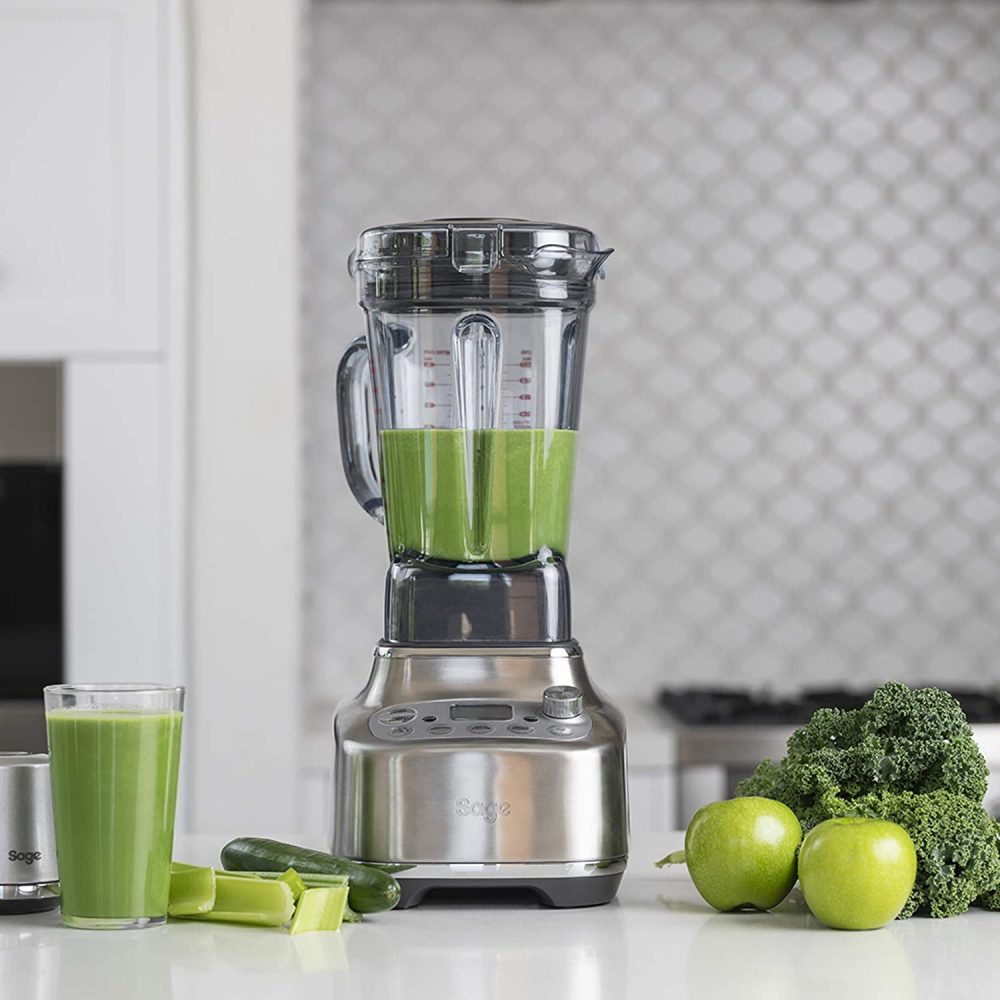
Best suited to keen cooks who like to experiment and want a powerful blender that will allow them to create flours from different grains or make nut butters and milks. But if you’re just going to use it for general everyday blending tasks like batters or milkshakes, you could probably save some money and opt for a less expensive blender.
-
+
Large capacity jug
-
+
Suitable for right- and left-handed people
-
+
Dishwasher safe accessories
-
+
BPA free jug
-
+
Jug is lightweight
-
+
Lots of blending speeds
-
+
Powerful blender
-
+
Can heat soup
-
-
Expensive
-
-
Bulky base
-
-
Foods can get hot when blended at high speed
-
-
Blade assembly is a bit tough to screw on to cup
Why you can trust Ideal Home
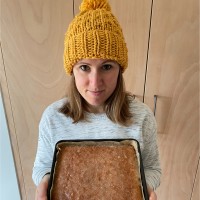
Sage describes the Super Q as a commercial-grade blender designed for the home kitchen. And its big heavy stainless-steel base certainly looks like it could have come straight from a chef’s kitchen. Add to that the large capacity jug and general robust feel, and this blender looks like it means business. But with that said, it doesn’t look out of place in a home kitchen, though I’d say it’s more suited to modern than kitschy or farmhouse style kitchens.
The big drawback to this blender is the hefty price tag, at just under £600 this isn’t the blender you buy for an occasional milkshake. I’ve used it for several tasks, and it certainly has the power to rival many of the best blenders, but it’s not without its faults.
Sage Super Q
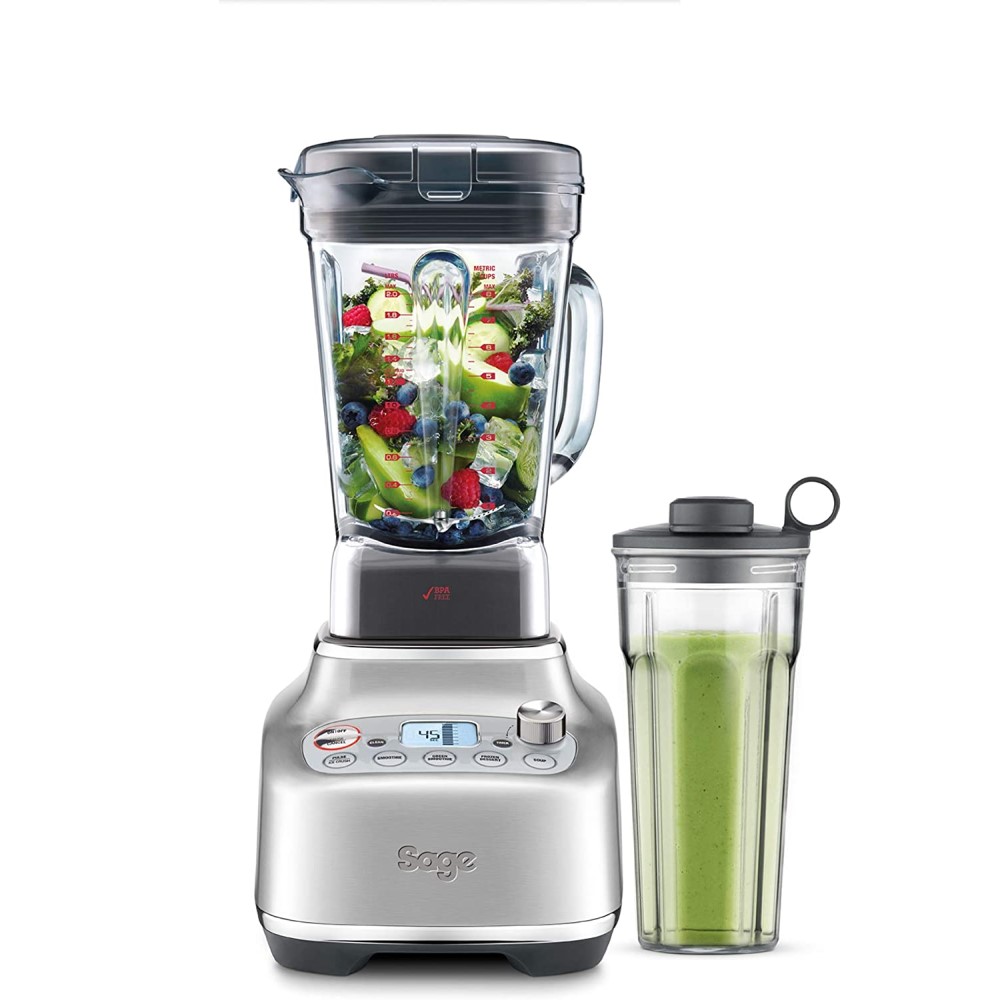
Specs
- Power: 2400W
- Material: BPA free plastic
- Capacity: 2 L jug, 700ml personal cup
- Pre-sets: 5 one touch blending programs
- Weight: 7.4kg
- Size: 40 x 26.8 x 20.8cm (h x w x d)
- Included: tamper, spatula, personal blender cup with lid and blades
Unboxing
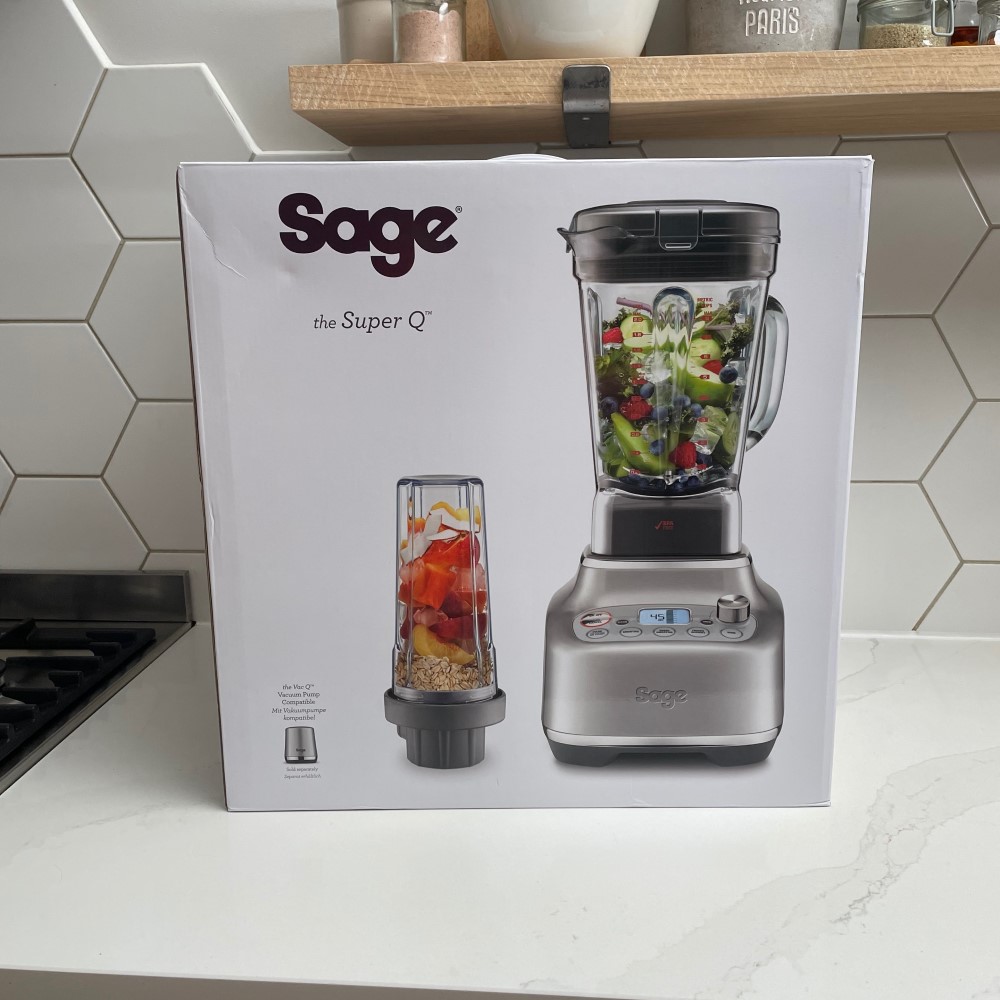
Considering it’s just a blender with a personal blending cup attachment, this Sage blender comes in a very large box. In fact, it was so unwieldy that I had to lay it on its side on the floor to ease the contents out. The blender comes encased in two huge chunks of polystyrene, which is not very environmentally friendly, and I’d prefer to see it packaged in something more easily recyclable.
When removing it from the box, I was first struck by the size of both the base and the jug. The solid stainless-steel base appears to be very good quality but is certainly larger than others I’ve reviewed. The jug has a big capacity, it’s not glass but it is BPA free plastic and the advantage of plastic is that it’s light, which is especially important when it’s full.

In addition to the main blender jug, there’s a 700ml personal blending cup with a lid and a blade attachment. There’s also a tamper and spatula. You don’t get a recipe book in the box, but there is one available to download on the Sage website and it’s got quite a comprehensive range of recipes from drinks and dressings to dips, flours and frozen desserts. It’s definitely worth downloading to get an idea of the blender’s capabilities as well as recipe inspiration.
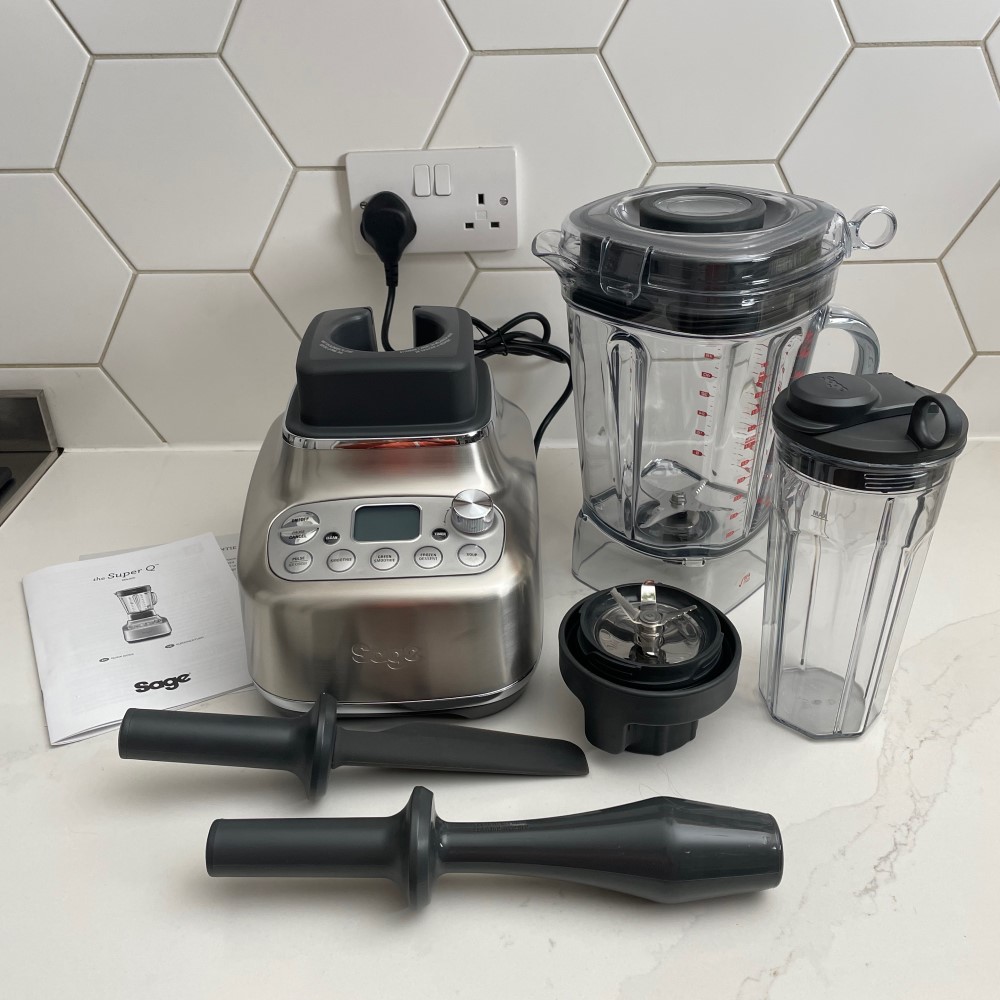
Using the Sage the Super Q
When you first set up the blender, the jug can be placed onto the base with the handle positioned to either the left or the right, so it’s user-friendly no matter which hand is your dominant one. The lid clicks on to the jug and has a handy ring to help pull it back off, sadly there are no safety features in place to stop you switching it on when the lid isn’t in place though.

The base knows whether you’ve attached the jug or the personal cup blender and it adjusts programme lengths accordingly as well as only making some auto programmes available for the cup. There are buttons for each of the five auto programmes and then for manual blending there’s a dial that allows you to increase the speed. As you adjust between the twelve speed levels the screen counts up the blending time as well as showing the current blending speed. The blending speeds are also named, there’s stir, mix, chop, blend, puree and mill. The names give a useful guide as to what speed you should use for different tasks and the recipe book also refers to the speeds by these names.
Blending smoothies in the Sage the Super Q
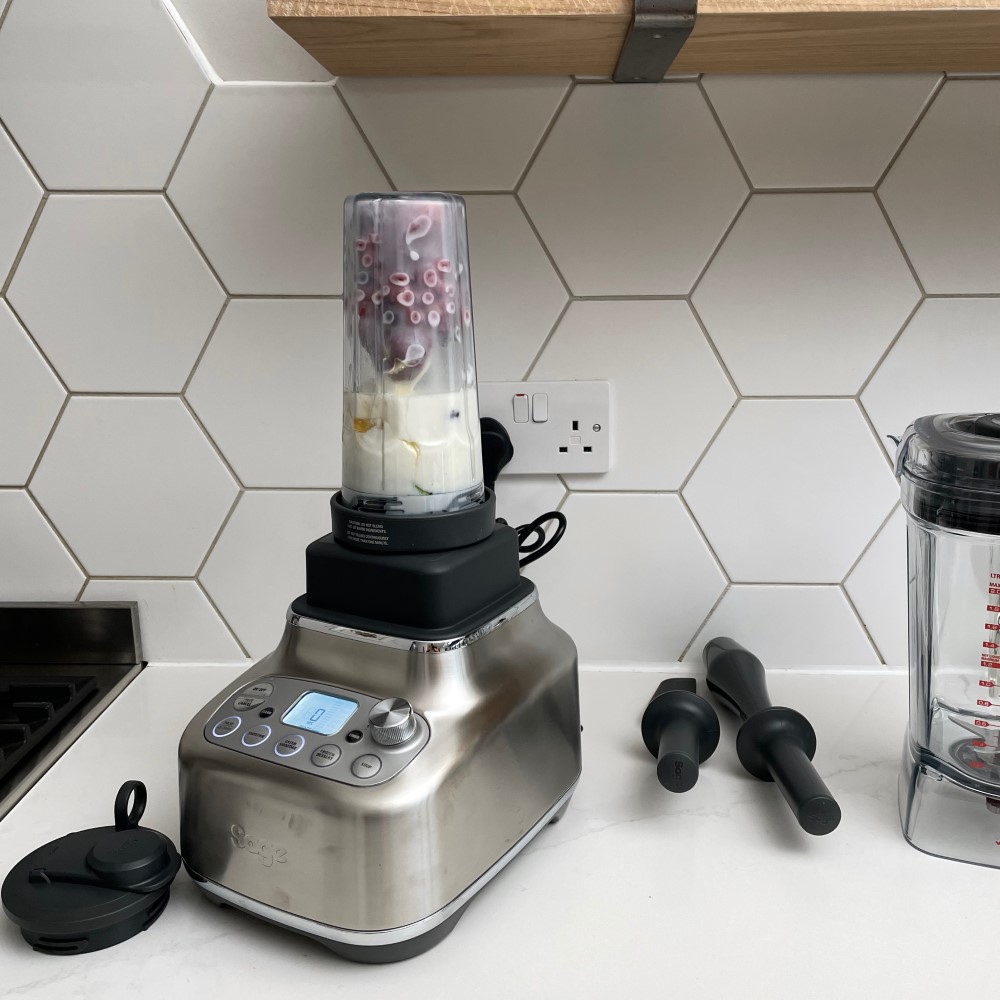
With so many smoothies in the recipe book I downloaded, it seemed silly not to try one out. All the smoothie ingredients are listed in quantities for several portions in the large jug or a single portion in the personal blending cup. I opted for the berry mint smoothie in a single portion, I added ingredients in the order listed in the recipe and ran the 30 second smoothie programme. Unfortunately, the frozen berries remained at the top of the cup, only dropping down towards the blades at the end of the programme.
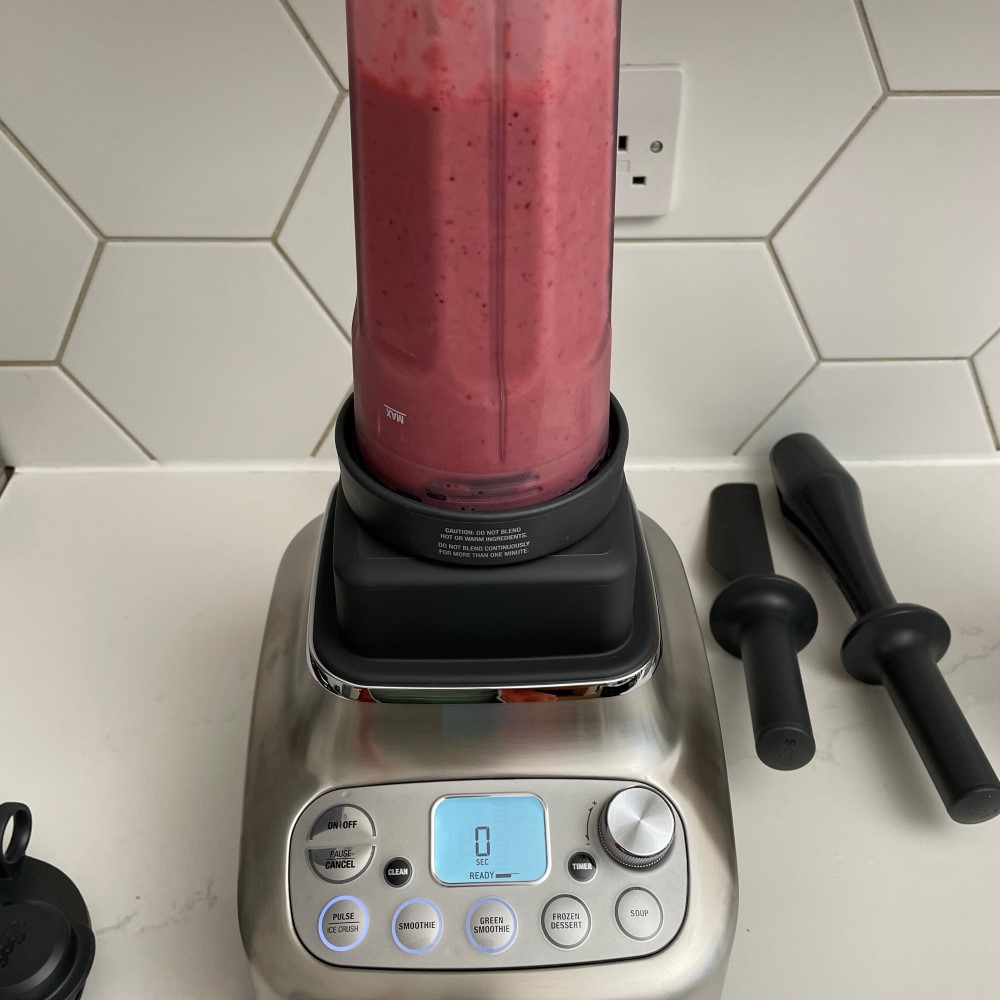
So, to give it a fair chance, I ran the programme again. At the end there were still visible specks of berry skin and the smoothie had a gritty texture from all the berry seeds that remained whole, and I must admit, I expected a smoother result. Having said that there were no lumps of frozen berry remaining and the mint leaves had been completely liquidized.
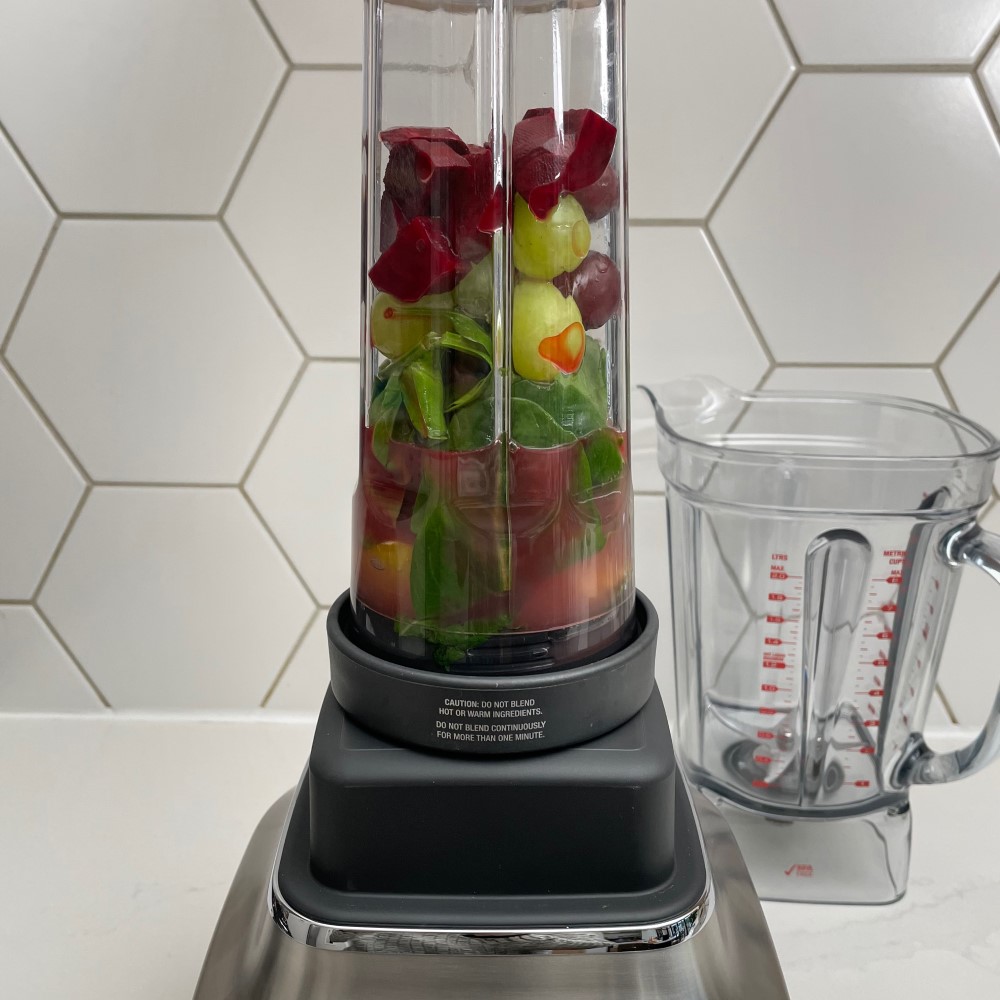
For my second smoothie I tried out the beetroot and ginger green smoothie in the personal cup. This recipe called for the green smoothie programme which took 30 seconds. Once blended, the drink was completely lump free, and the blood red beetroot colour had no hints of green from spinach or mint leaves. The raw beetroot meant it had a slightly powdery texture and it was also quite frothy, a bit like a frothy freshly squeezed juice, but otherwise I had no complaints.
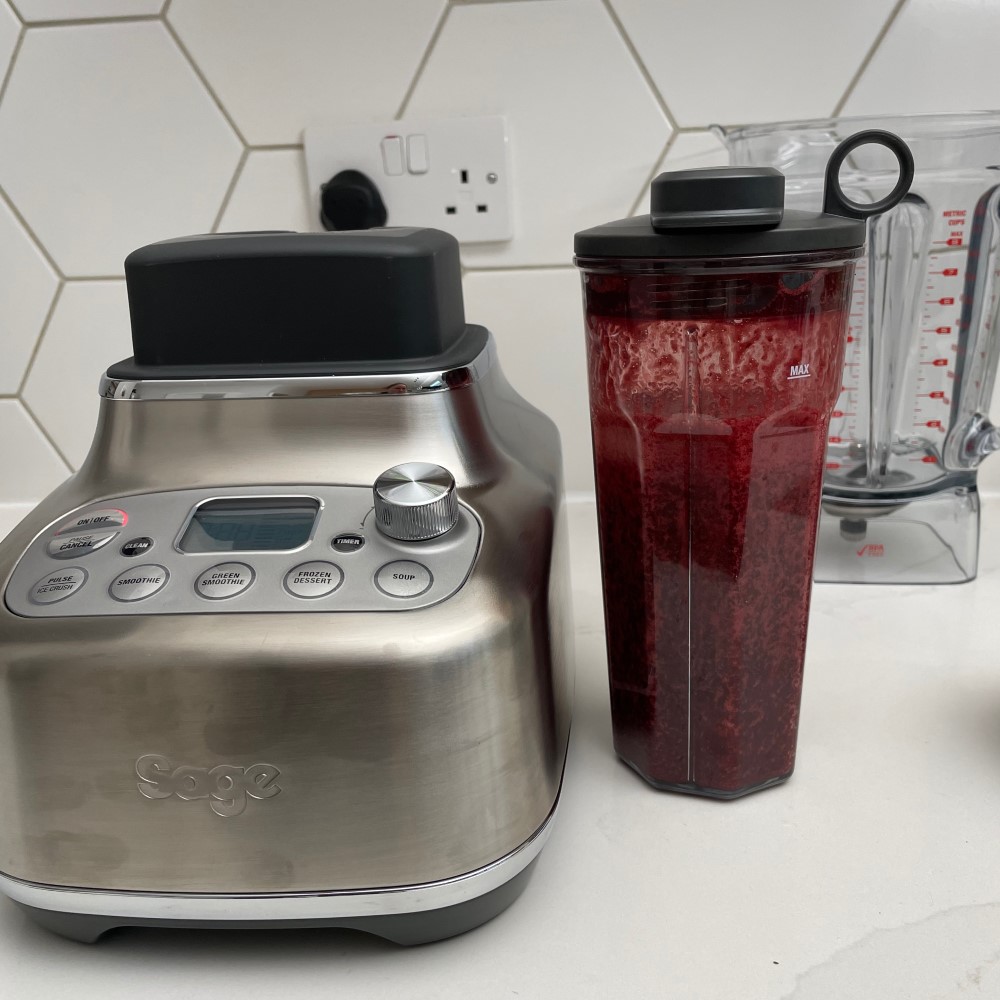
Milling nuts and seeds in the Sage the Super Q
The recipe book includes several recipes for milling nuts, seeds and grains, so I was intrigued to try it out and see if the blender truly has the power to grind down these tough ingredients. I chose the linseed, sunflower and almond meal recipe, which essentially grinds these seeds and nuts into a fine flour.
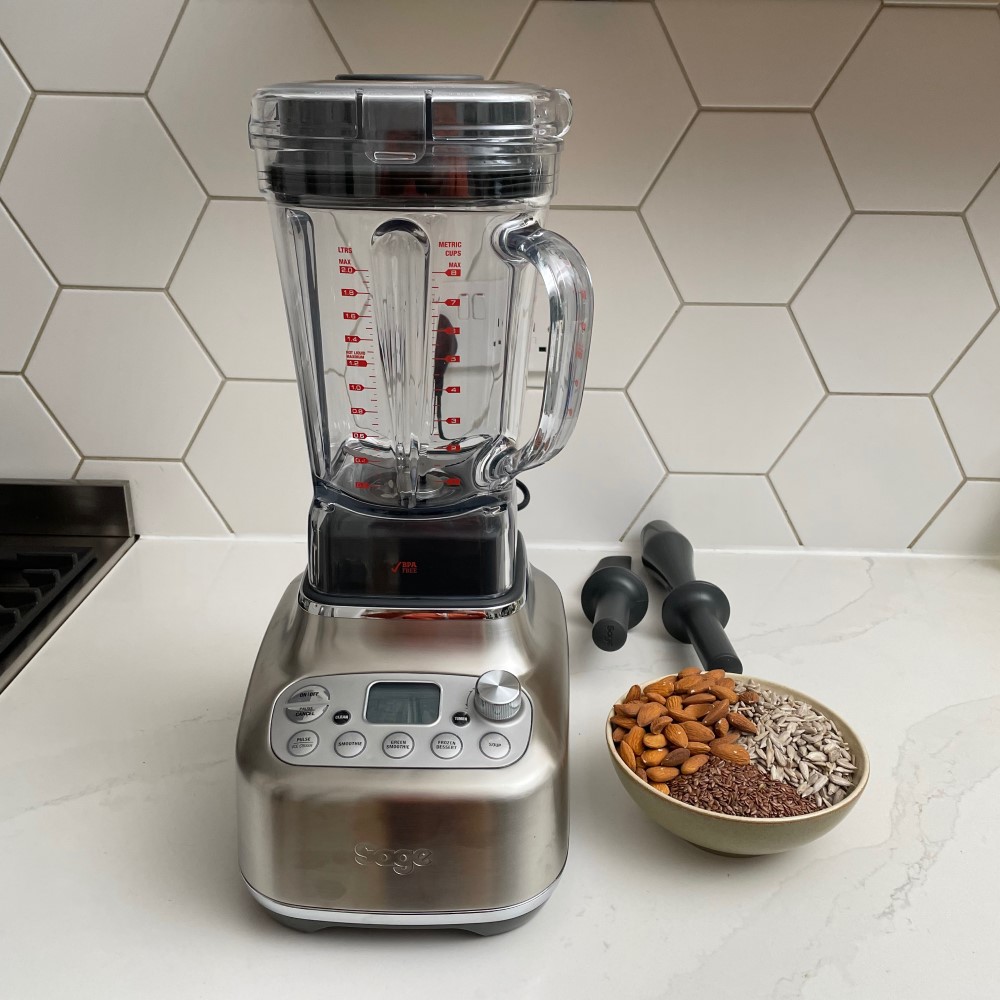
The recipe suggested this would take just 15- 20 seconds, but I was sceptical. However, after just 15 seconds on the mill setting, which is the highest speed, I switched it off and sure enough, most of the seeds and almonds had been ground to a fine flour. I noticed a few whole linseeds so gave it a stir and switched it back on for an additional five seconds. It really was impressive how fast the blender ground down almost 500g of nuts and seeds.
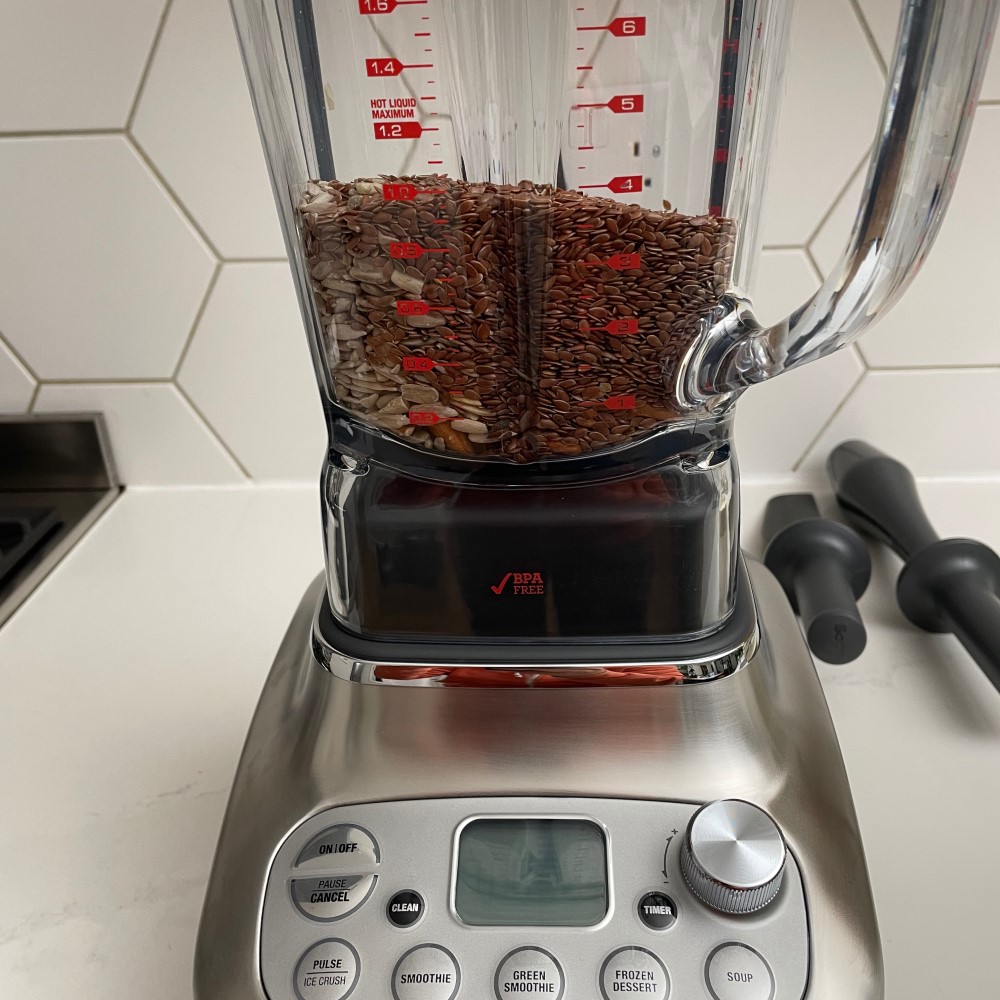
There was the odd whole linseed still present, but I could forgive that since they are so tiny. My real disappointment came from the heat produced. Given that it had been blended for a total of just 20 seconds, I was surprised at how warm the flour was at the end, the blades obviously create a lot of heat which isn’t ideal for some foods and recipes.
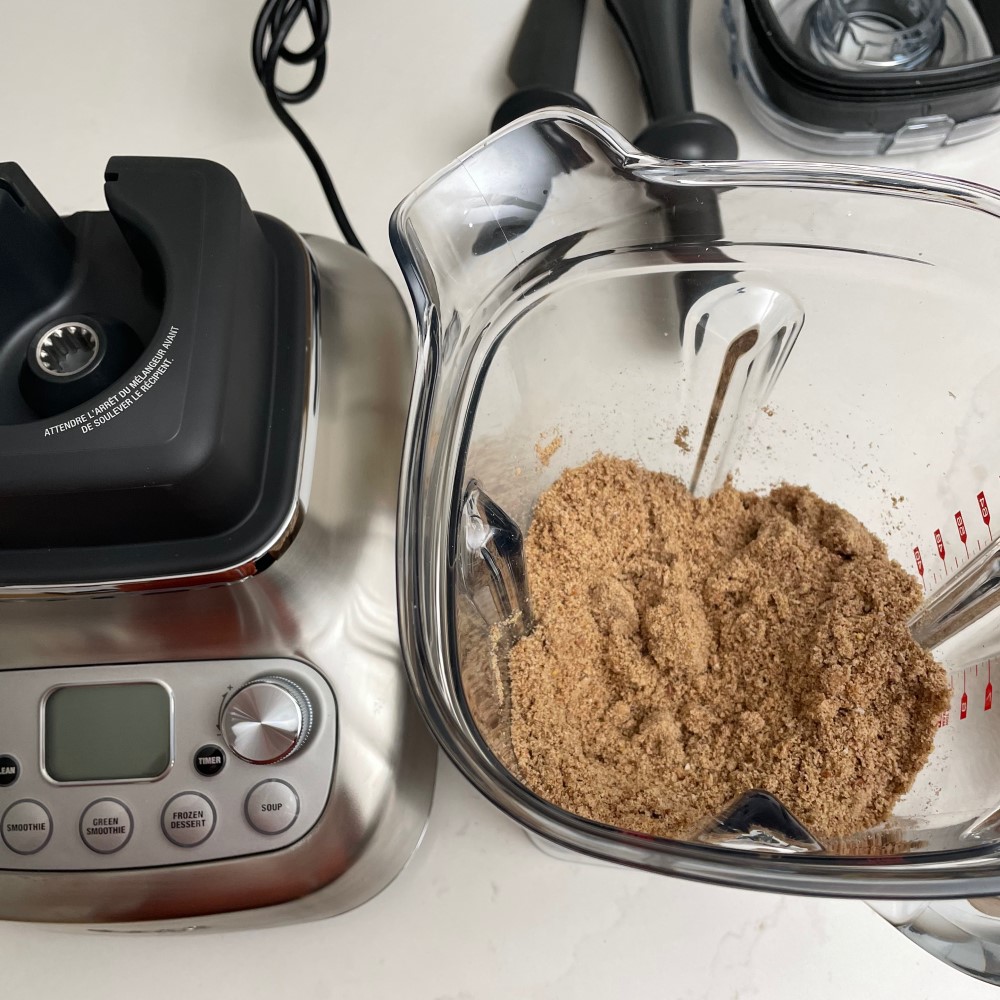
Making frozen yoghurt in the Sage the Super Q
I tried out the frozen dessert programme by making the banana, pecan and honey frozen yogurt from the recipe book. All of the ingredients including four bananas that had been previously sliced and frozen, go straight into the jug. I used the tamper to keep pushing the ingredients back towards the blades during the 50 second programme and at the end it produced a silky smooth and tasty frozen yogurt, I was delighted.
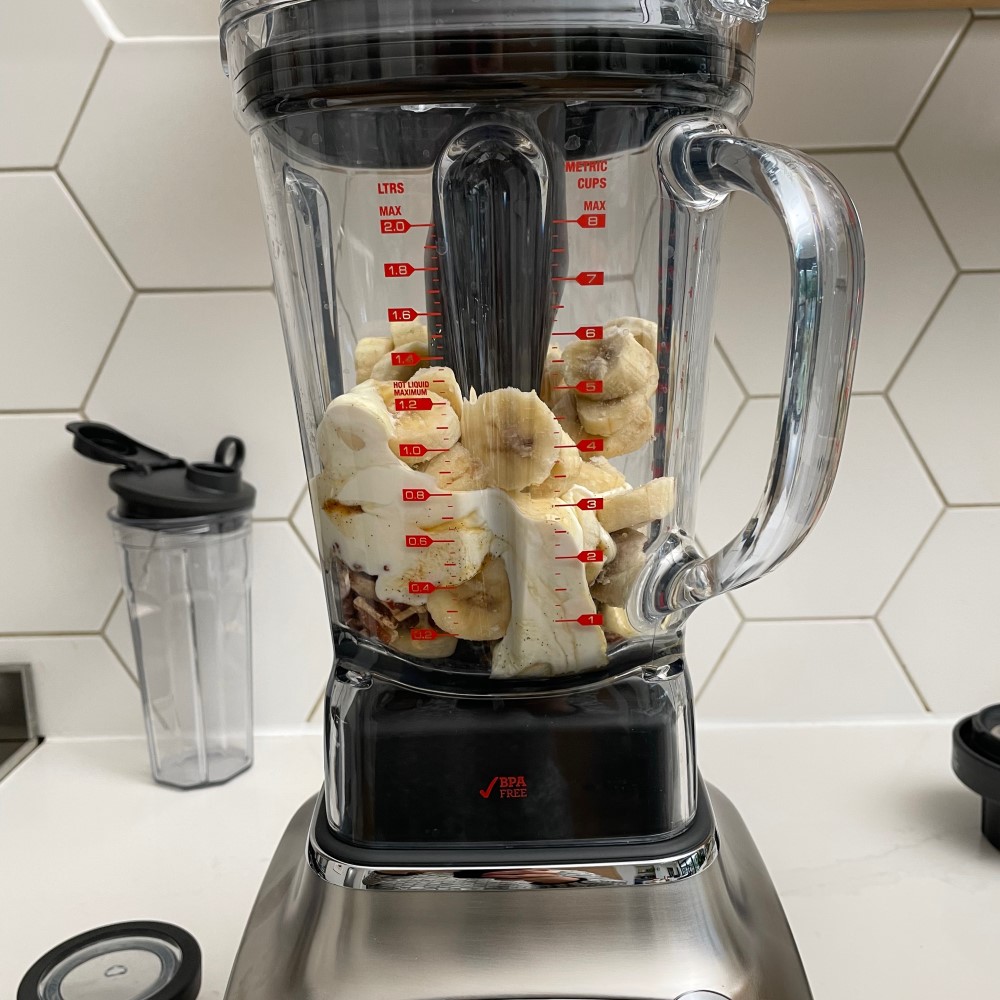
I’ve tried to make frozen banana-based desserts before in other appliances and they usually take much longer. The dessert remained cold and thick enough that you could eat it immediately, but I emptied it into a tub with the aid of the spatula and popped it in the freezer for later.
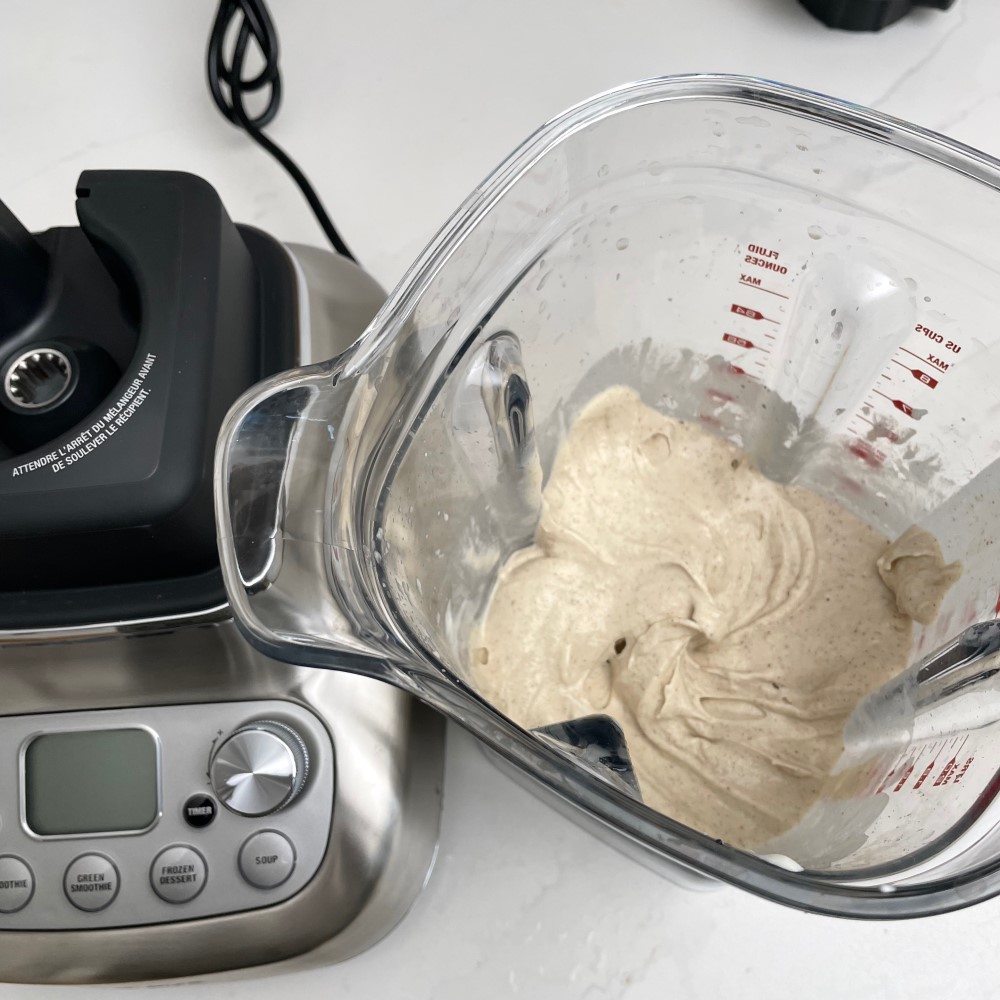
Making soup in the Sage the Super Q
Here’s the thing about the soup programme, it’s a five- and half-minute programme that heats and blends ingredients to give a smooth hot soup. But it uses heat generated by the blades to heat the soup as opposed to having a heating element.
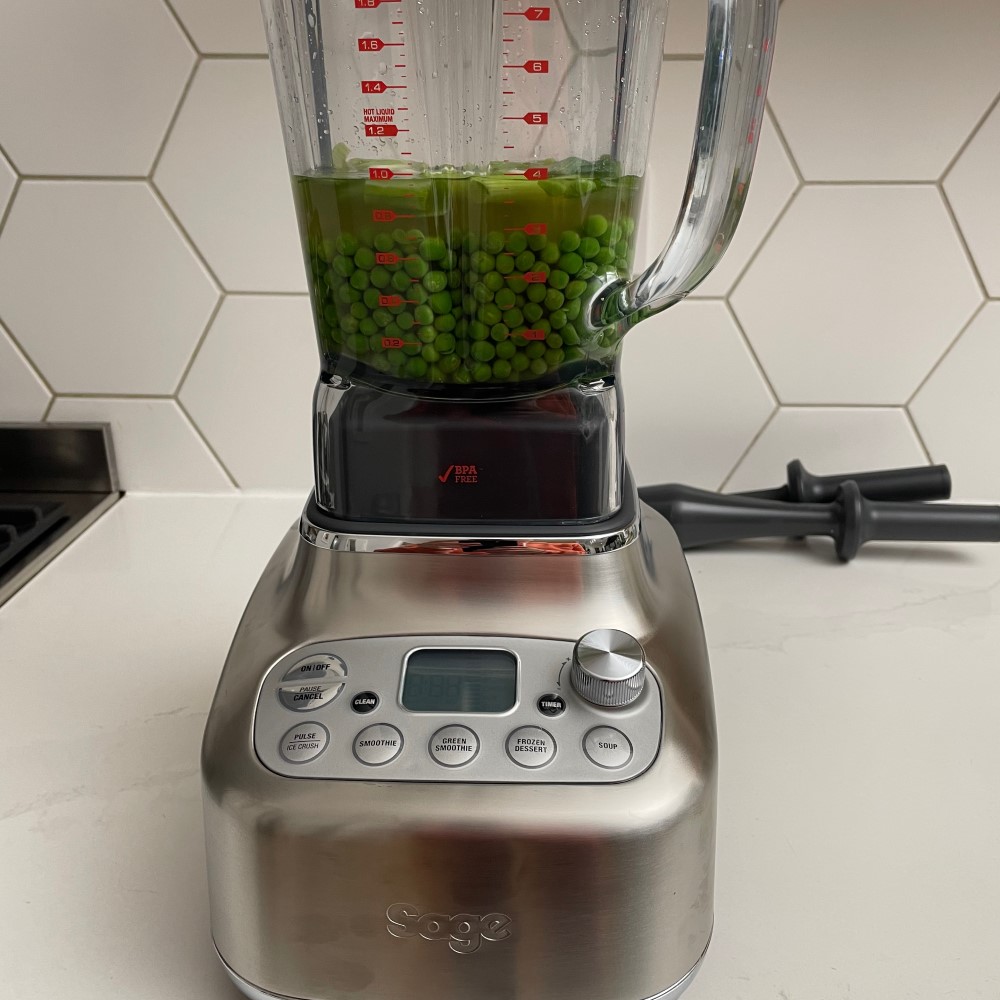
So while it can make some soups from scratch, other soups with hard ingredients like butternut squash would have to be cooked first. I chose a simple pea and mint soup from the recipe book. I added defrosted peas, cold vegetable stock and spring onions, then started the programme.
It’s quite loud because it blends for the entire length of the programme, but the result was a steamy hot, smooth creamy pea soup, not bad for such a short time. The recipe was to serve four, but I got three bowls out of it.
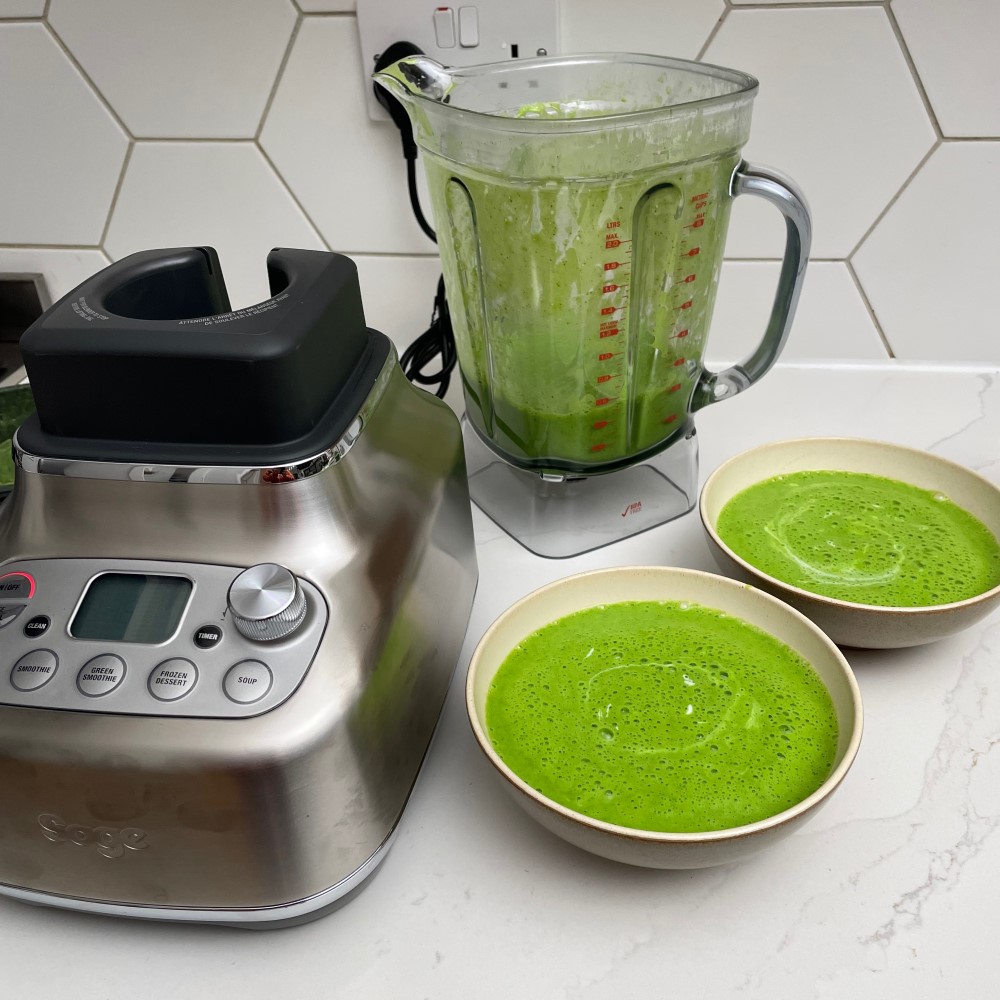
Crushing ice in the Sage the Super Q
This blender is so powerful, the crushed ice programme turned my ice to snow. The programme pulses the ice for up to 60 seconds, but I stopped it after 30 when I couldn’t hear any more large chunks of ice moving around. The result was a crushed ice so fine and powdery it felt like snow. Although I guess you could stop it sooner if you want a chunkier crushed ice for cocktails.
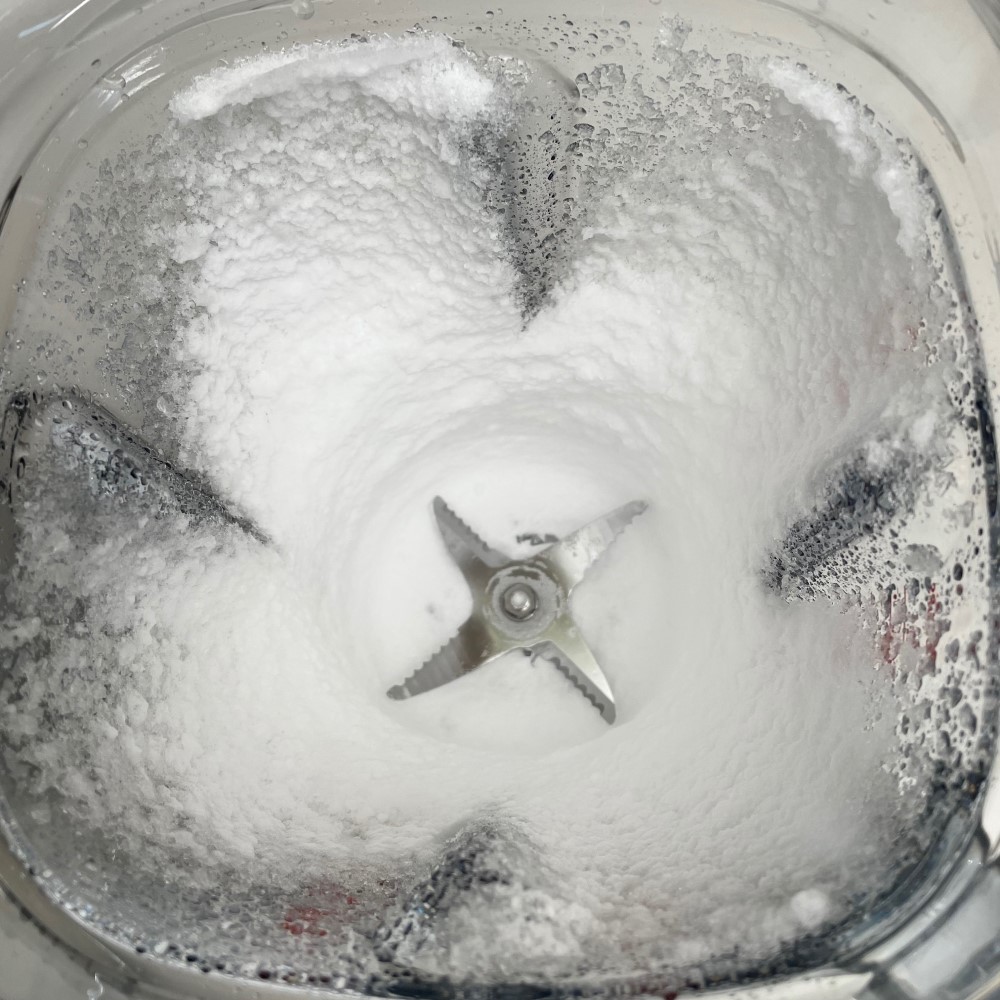
Cleaning
Both the personal blender and the jug can be cleaned using the auto clean programme, which just requires you to add warm water and washing up liquid. The programme takes one minute when cleaning the jug and 30 seconds when cleaning the personal cup and is the easiest way to remove residues from under the blades.
The jug, personal blending cup and all other accessories are dishwasher safe. The manual advises that while the jug can go on the bottom shelf, all other accessories should go on the top shelf, but the personal cup is way too tall to go on the top shelf of most people’s dishwashers.
It’s also worth noting that the stainless-steel base of the blender marks easily with fingerprints, so needs wiping regularly to keep it looking shiny.
FAQs
We spoke to UK Juicers, who sent us the Sage Super Q blender for this review, to find out who this high-tech blender is best suited to.
Is it better to go for a blender with a glass or plastic jug?
"It's a matter of personal preference as performance-wise there's no difference. There's always a greater chance of breaking a glass jar and they are heavier. However, in spite of the majority of polycarbonate blender jars now being BPA free, some people are still worried about the leaching of toxic chemicals from plastics, particularly when blending hot liquids."
How much do I need to spend to get a good blender?
"For people who want to pursue a plant-based diet and would like to be able to get smooth results blending fibrous leafy greens in a smoothie for example, then you probably need to be spending £300 or more. If you don't want to blend some of the more demanding recipes in the raw food lifestyle, then something like the Sage Fresh & Furious is a great choice. It will still do green smoothies, they just won't be quite as smooth. The main advantage of the so-called super blender is that you can make a warm soup from scratch without needing your cooker, while at the same time preserving the nutrition that simmering will destroy."
When is it better to use a blending cup over a blending jug?
"When you're on the go. For example, when you're about to go to the gym you can blend straight into the cup you're taking with you."
Should you buy the Sage the Super Q?
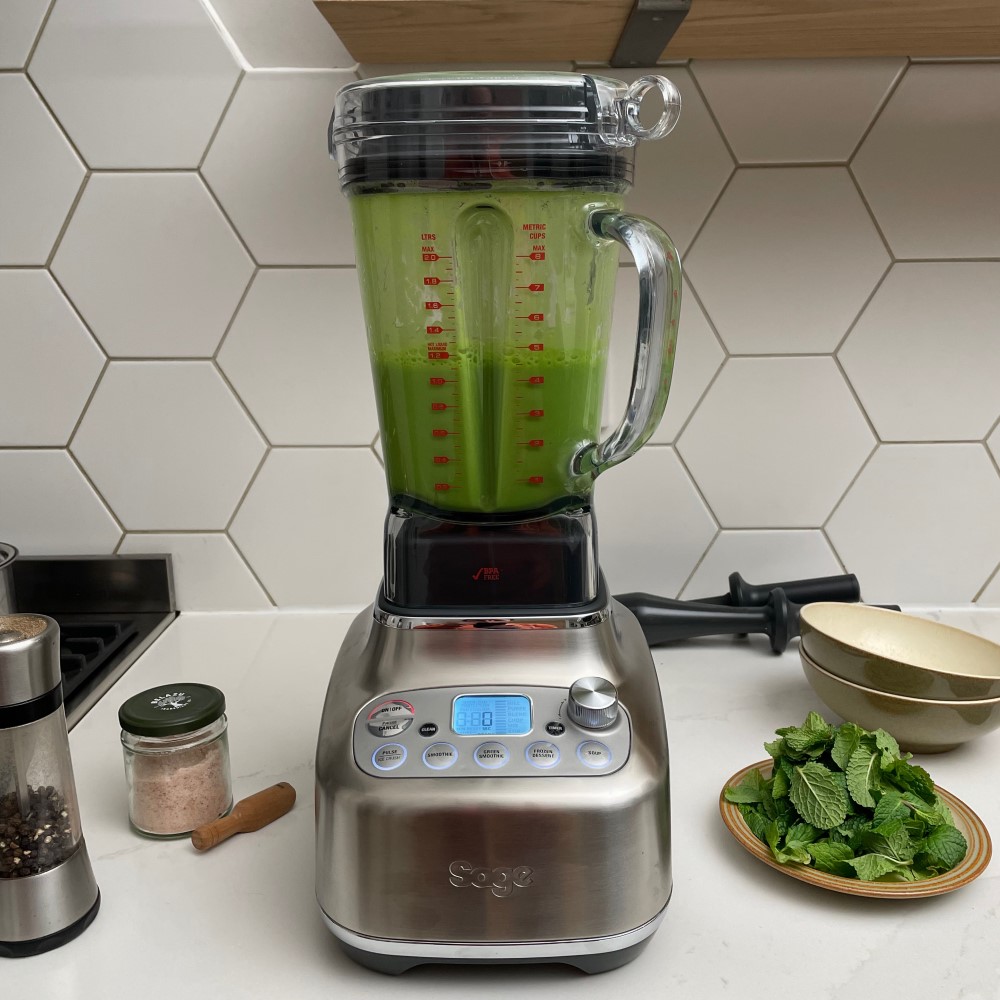
Sage appliances have a reputation for being high end and expensive, but you’ve got to be a serious blending enthusiast to fork out just under £600 for a blender. Don’t get me wrong, this blender has some serious power, and I was impressed with its ability to mill seeds as well as blend frozen banana and ice.
I’d say it’s best suited to keen cooks who like to experiment and want a powerful blender that will allow them to create flours from different grains or make nut butters and milks. But if you’re just going to use it for general everyday blending tasks like batters or milkshakes, you could probably save some money and opt for a less expensive blender. Alternatively, take a look at the Sage Bluicer for something that rivals the best juicers as well as a blender.
About the reviewer
Helen McCue is a freelance contributor who trained as a Home Economist. After starting her career in the food industry, she moved into home appliance reviews, utilising her cooking skills and experience to put all kinds of products to the test, and over the years has reviewed hundreds of home and kitchen appliances for a variety of publications.
Having completely renovated her current house, Helen reviews kitchen appliances from her open plan kitchen at home in a beautiful Berkshire village. When she’s not working, Helen can be found enjoying the local countryside or dreaming about her next house renovation project.
Get the Ideal Home Newsletter
Sign up to our newsletter for style and decor inspiration, house makeovers, project advice and more.

After completing a Home Economics degree, Helen went on to work for the Good Housekeeping Institute and has been reviewing home appliances ever since. She lives in a small village in Buckinghamshire in the UK, where she reviews all sorts of home and garden appliances for Ideal Home using her wealth of experience.
-
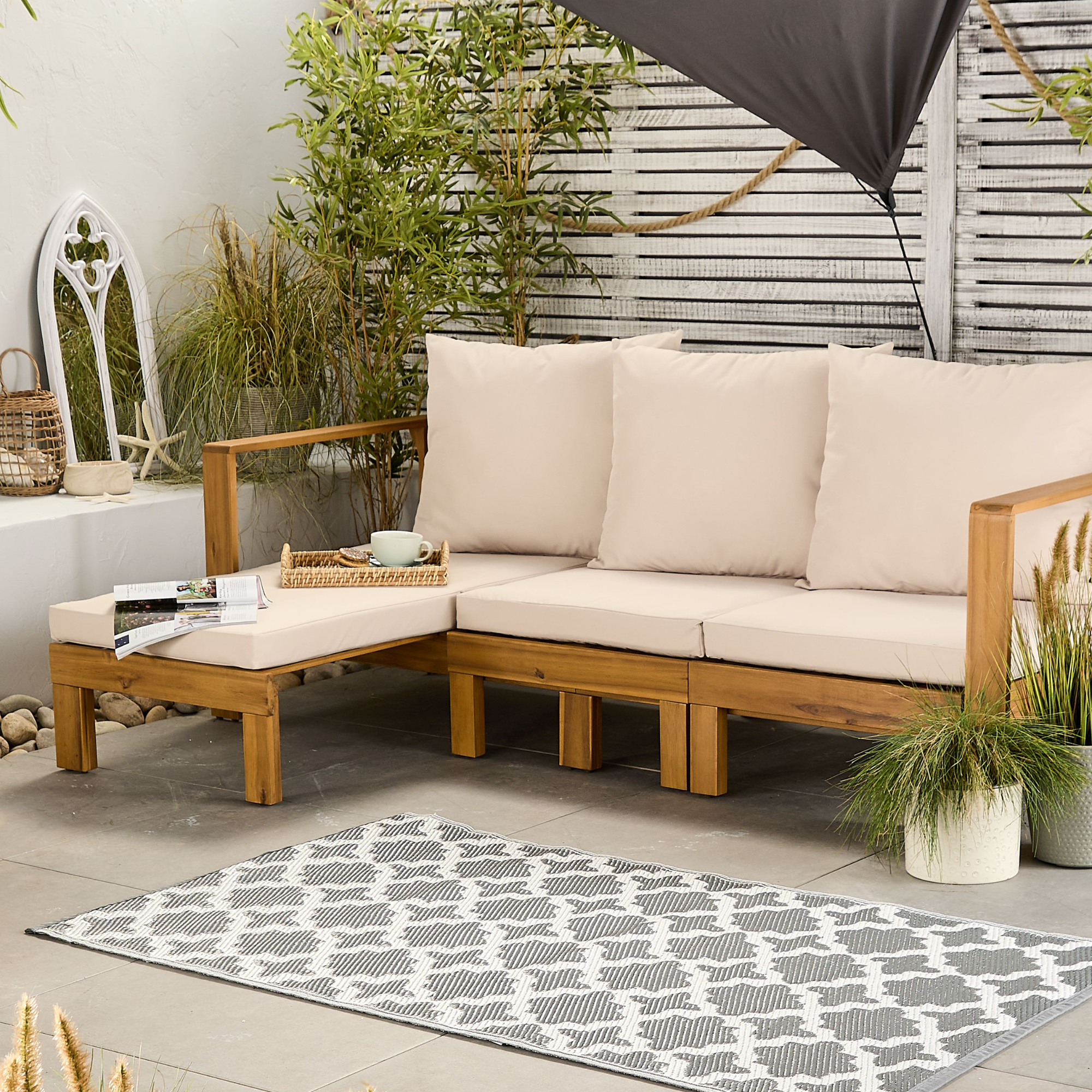 Aldi is launching a £200 day bed with four different features - its sleek design is suited to the whole family
Aldi is launching a £200 day bed with four different features - its sleek design is suited to the whole familyYou don't want to miss out on this Specialbuy
By Kezia Reynolds
-
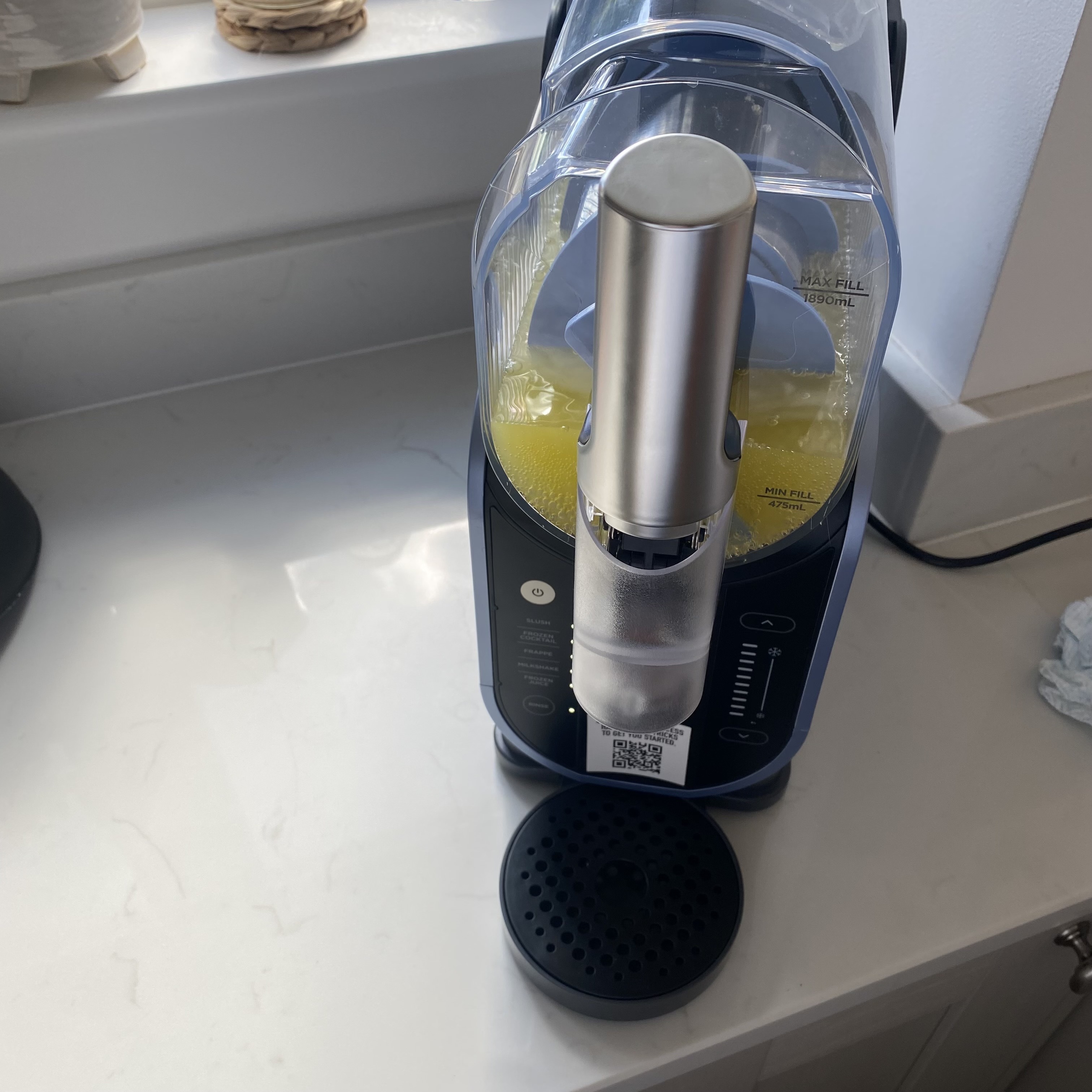 I've been waiting to try out the Ninja Slushi for months – this is what happened the first time I tried it
I've been waiting to try out the Ninja Slushi for months – this is what happened the first time I tried itThe Ninja Slushi is the stuff of dreams for summer entertaining
By Molly Cleary
-
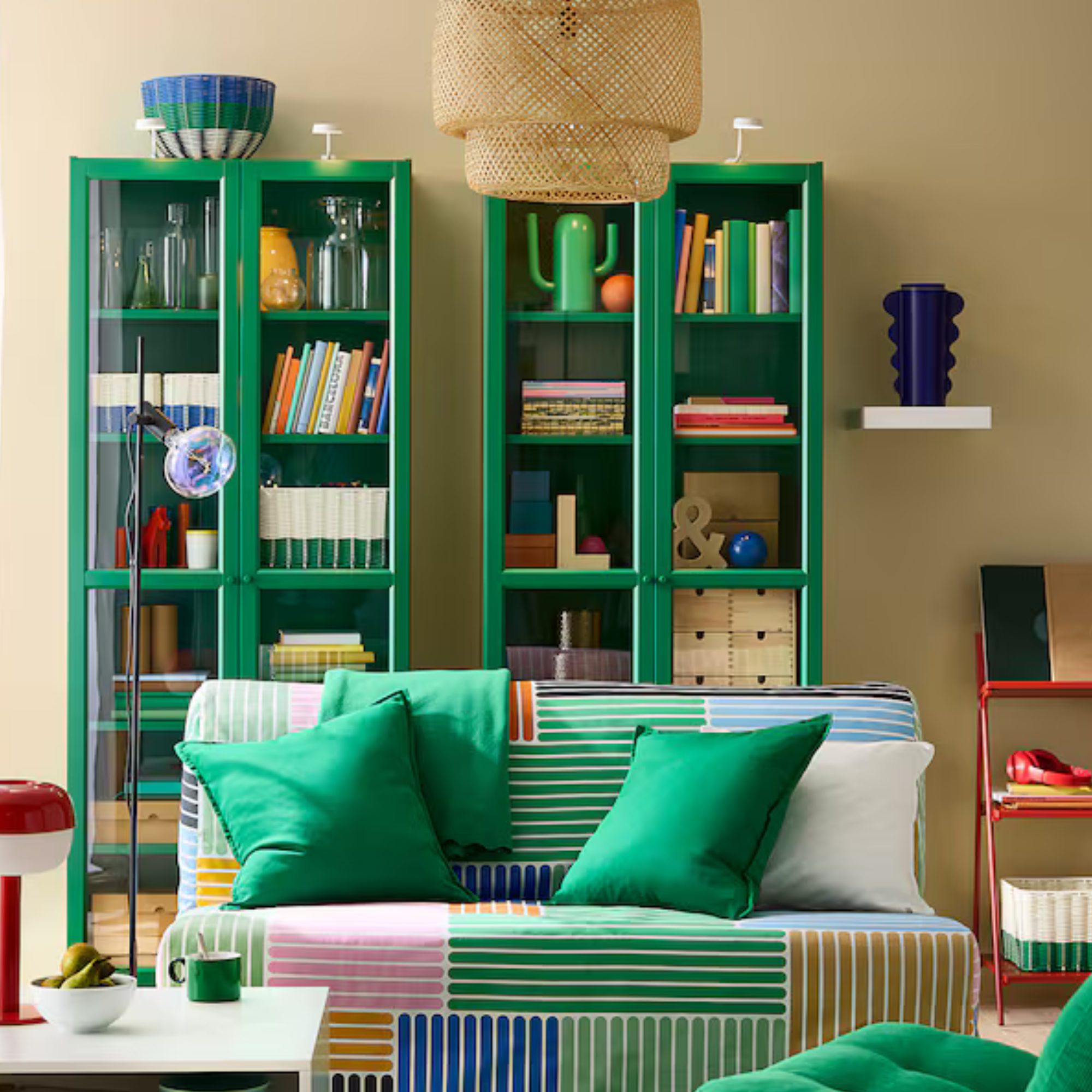 IKEA has drenched its BILLY bookcase in this year’s ‘it’ colour - but you’ll have to act fast if you want to get your hands on one
IKEA has drenched its BILLY bookcase in this year’s ‘it’ colour - but you’ll have to act fast if you want to get your hands on oneI'm obsessed with this gorgeous limited-edition colourway
By Kezia Reynolds